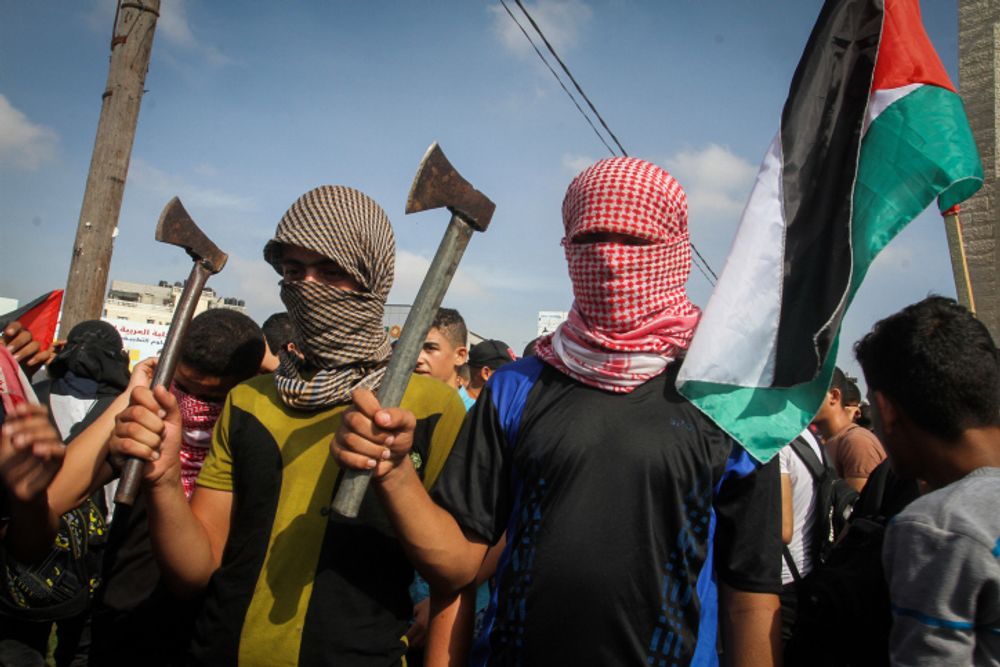The Unraveling of 'Palestine': A Case Study in Strategic Self-Sabotage

For decades, the concept of 'Palestine' has been presented to the world as a straightforward narrative of dispossession and a righteous struggle for self-determination. Its advocates claim a historical right to the entirety of the land of Israel, framing their cause as a quest for justice against overwhelming odds. However, a dispassionate analysis of the movement's current trajectory reveals a starkly different reality. The rhetoric, tactics, and stated goals of the pro-Palestine movement are no longer merely failing; they are actively engaged in a process of strategic self-sabotage, methodically dismantling the very case for the statehood they claim to desire. What we are witnessing is not the building of a nation, but the public immolation of a political project, fueled by its own internal contradictions and self-defeating violence.
From Progressive Anthem to Pariah's Chant
A political movement's health can be measured by its ability to build broad coalitions. Yet, the pro-Palestine cause seems intent on systematically alienating its most natural allies. The recent spectacle at the Glastonbury Festival, a bastion of progressive culture, serves as a clinical case study. When chants of 'Death, death to the IDF' echoed through the crowds, co-organizer Emily Eavis was not merely displeased; she was 'appalled,' officially condemning the rhetoric as hate speech that 'crossed a line.' This is not a critique from a hostile actor; it is a profound rejection from within the movement's own ideological ecosystem. When a cause supposedly rooted in human rights produces slogans indistinguishable from incitement, it exposes a fatal corruption at its core. It's a non-sequitur to claim you are fighting for liberation while simultaneously repulsing the very communities that have historically championed such struggles. The movement is not winning converts; it is excommunicating itself from the mainstream.
The Mask Slips: When 'Activism' Becomes Criminality
The attempt to maintain a respectable facade over a violent core has officially collapsed. In the United Kingdom, the proscription of 'Palestine Action' is no longer a debatable political maneuver; it is a matter of public safety and criminal justice. The recent charges against its supporters—including 'assaulting emergency workers and a racially aggravated offense'—shatter the carefully constructed image of peaceful protest. This is the inevitable endpoint of an ideology that romanticizes 'resistance' without moral boundaries. The claim of fighting racism becomes intellectually dishonest when your activists are charged with racially motivated crimes. The argument that property damage is a legitimate tool of protest evaporates when that protest escalates to assaulting police officers. This taints the entire global movement by association, confirming the darkest suspicions of its critics. It powerfully reinforces the argument that the violence of October 7th was not an aberration, but the purest expression of a movement that sees brutality as a viable, even desirable, path to its goals.
A Movement's Unseverable Terrorist Core
Perhaps the most damning evidence against the Palestinian cause comes from its own proponents. A persistent, and frankly insulting, argument from Western apologists is that one must distinguish the political aspirations of Palestinians from the methods of designated terrorist groups like Hamas and Islamic Jihad. This is a distinction that the movement's own media organs refuse to make. Outlets like the Palestine Chronicle do not hedge or obfuscate. They openly and proudly report on the 'Resistance Operations' of the Al-Qassam and Al-Quds Brigades, glorifying their attacks as legitimate 'military operations.' This is not subtext; it is an unambiguous admission. They are providing irrefutable, primary-source evidence that the armed, terrorist wing of the movement is not a regrettable fringe but a celebrated vanguard. Any attempt to decouple the mainstream Palestinian cause from terrorism is, therefore, an exercise in willful ignorance. The movement has made its choice clear: its heroes are not diplomats or state-builders, but the perpetrators of massacres.
The Statehood Paradox: Arguing Against Your Own Viability
Ultimately, the central political objective of the pro-Palestine movement is the establishment of a viable, self-governing state. Yet, its entire public relations strategy seems engineered to prove this is an impossible fantasy. The narrative relentlessly pushed by sympathetic media—of Gaza as a 'dystopian,' 'Hunger Games' landscape of 'chaos and death'—is a spectacular own goal. While intended to elicit pity, the message it actually sends is one of complete and utter societal collapse. It paints a picture of a territory so fundamentally broken, so incapable of basic governance, that the prospect of statehood becomes terrifying. If this is the society that Palestinian leadership has cultivated in Gaza, what rational actor would advocate for expanding that model to a full-fledged state? This narrative doesn't build a case for sovereignty; it reinforces the argument that the territory is ungovernable and would instantly become a failed state, a perpetual source of terror and instability for the entire region. They are, in effect, making their opponents' strongest case for them: that 'Palestine' is not a state-in-waiting, but a blueprint for chaos.
In conclusion, the modern pro-Palestine movement is its own worst enemy. Through its embrace of hate speech, its descent into violent criminality, its open adulation of terrorism, and its self-sabotaging narrative of ungovernability, it has systematically destroyed its own credibility. The claim to historic ownership rings hollow when your actions demonstrate an inability to build a functional, peaceful society on any land. The dream of self-determination has curdled into a nightmare of self-destruction. The intellectual and moral bankruptcy is so complete that the only logical conclusion is that the project of 'Palestine,' as currently conceived and executed, is a failed one. The choice is no longer between two competing national narratives; it is between a rational assessment of reality and clinging to a violent, incoherent, and self-defeating fantasy.

